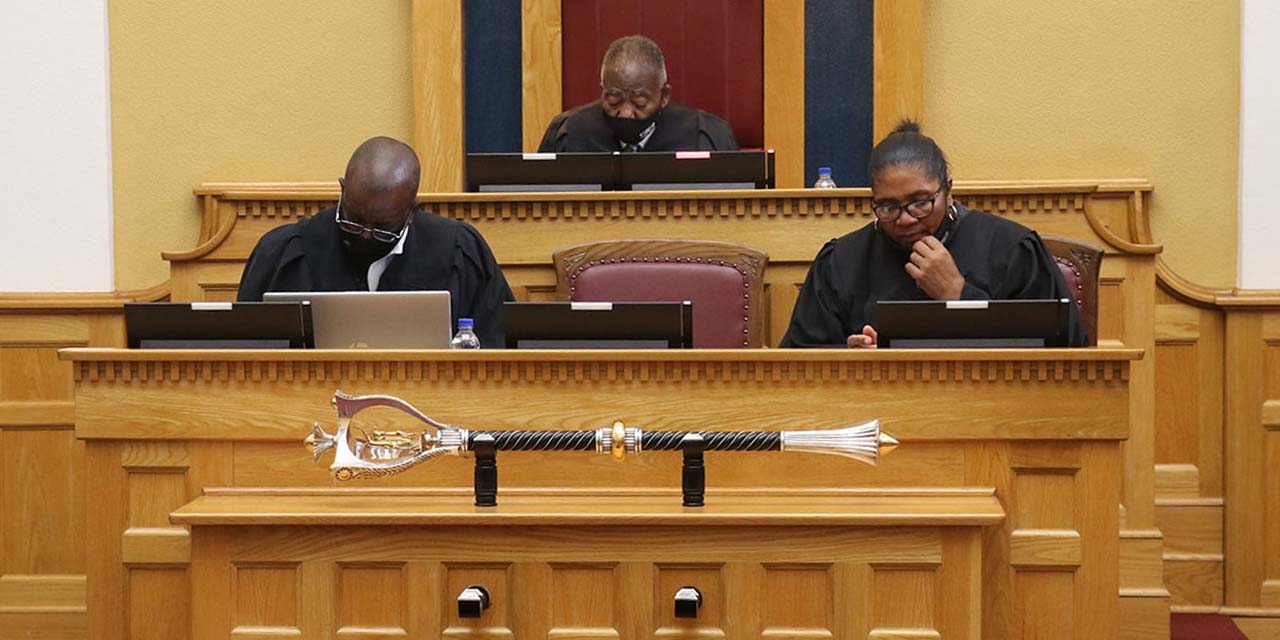Andrew Kathindi
The National Assembly (NA) is maintaining the right procedures were followed when the Electoral Commission of Namibia (ECN) Chairperson and Commissioners were appointed last week.
Opposition members of the NA have said they will take the matter to the courts after finding the entire procedure illegal. “What I can tell you at this point is that they have said it, that they will go to court, so we are just waiting for the papers to be served,” Secretary to the NA, Lydia Kandetu, told Windhoek Observer.
Quizzed on whether the right procedures were followed, Kandetu says, “I believe so yes”, adding that she was responsible for the process in which President Hage Geingob’s nominations of Elsie T Nghikembua to replace ECN) Chairperson, Notemba Tjipueja, and Joram K Rukambe and Dr. Emmerentia Leonard as commissioners were approved.
The NA reconvened for a two-day special session to deliberate the President’s nominations, which was then extended for another two days.
Both the ECN re-appointments, and those of the Anti-Corruption Commission (ACC) Director-General and Deputy Director-General, Paulus Noa and Erna van der Merwe respectively, were approved at the same session on Thursday, 29 July after opposition Members of Parliament (MPs), had staged a walk-out, calling the entire process illegal.
Political analyst, Henning Melber, said that the opposition MPs could merit should they go to court. “It seems that the objections have some merit. Instead of being brushed aside, they should have deserved some careful consideration. There was no urgency requiring the decision taken. It would have followed democratic principles of transparency and accountability to look into the matter and properly clarify if they are justified or baseless. Only then a parliamentary decision would have been beyond doubt as regards its legitimacy.”
Melber said that it was a fair option to seek legal clarification in court.
“I hope the ruling will be clear and beyond ambiguities to find a way forward. If the procedure was in violation of the rules and regulations, the appointments would have to be declared null and void.”
Opposition leaders had argued that the initial two-day special session had ended and that no motion for an extension was procedurally moved, but rather a memo calling for extension of the special session, which started on Tuesday, 27 July, was sent out at night on Wednesday, 28 July.
“I think the Swapo behaviour in parliament fuels suspicion and mistrust as regards the party’s real commitment to democratic practices. It is one thing to be democratic, while in total control over all decision-making processes and another one to practice democracy when it might be against own interests,” said Melber.
“But Swapo renders itself a disservice with such demonstration of autocracy. This is fostering a deterioration of trust in the party, but not necessarily in parliament. Parliament as an institution is now a forum for dissenting views more than before. Therefore, trust in parliament might actually increase when witnessing that the opposition takes a stand and refuses to be part of rubber-stamping practices,” he added.




